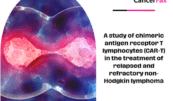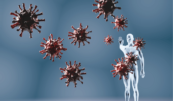Safety and Efficacy Study of Anti-B7-H3 CAR-T Cell Therapy for Recurrent Glioblastoma
March 2023:
Study Type : Interventional (Clinical Trial)
Estimated Enrollment : 30 participants
Allocation: N/A
Intervention Model: Sequential Assignment
Intervention Model Description: a “3+3” design is used to determine Maximum Tolerated Dose (MTD) and the recommended phase 2 dose (RP2D)
Masking: None (Open Label)
Primary Purpose: Treatment
Official Title: An Open, Single-arm, Phase 1 Study to Evaluate the Safety/Preliminary Effectiveness and Determine the Maximal Tolerated Dose of B7-H3-targeting CAR-T Cell Therapy in Treating Recurrent Glioblastomas
Actual Study Start Date : January 27, 2022
Estimated Primary Completion Date : December 31, 2024
Estimated Study Completion Date : December 31, 2024
Dose-escalation phase:
A “3+3” dose-escalation design is used to determine MTD & R2PD. Anti-B7-H3 autologous CAR-T cells were given biweekly to patients at the following doses for each cycle, and 4 cycles as one course. Dose 1: 3 patients at a dose of 20 million cells for each cycle. Dose 2: 3 patients at a dose of 60 million cells for each cycle. Dose 3: 3 patients at a dose of 150 million cells for each cycle. Dose 4: 3 patients at a dose of 450 million cells for each cycle. Dose 5: 3 patients at a dose of 900 million cells for each cycle.
R2PD confirmation phase:
Determine the R2PD based on the results from the previous dose-escalation study; Treat another 12 patients with anti-B7-H3 autologous CAR-T cells biweekly at the R2PD to further confirm the safety of R2PD.
At each dose phase, if the patients show tolerance and response to the treatment, these patients would receive several courses of treatment at the PI’s discretion.
Criteria
Inclusion criteria
- Male or female, aged 18-75 years (including 18 and 75 years old)
- Patients with relapsed glioblastoma, as confirmed by positron emission tomography (PET) or histologic pathology
- A >= 30% staining extent of B7-H3 in his/her primary/recurrent tumor tissue by the immunochemical method;
- Karnofsky scale score >=50
- Availability in collecting peripheral blood mononuclear cells (PBMCs)
- Adequate laboratory values and adequate organ function;
- Patients with childbearing/fathering potential must agree to use highly effective contraception.
Exclusion criteria
- Pregnant or breastfeeding females
- Contraindication to bevacizumab
- Within 5 days before the CAR-T cell infusion, subjects receiving systemic administration of steroids with dosage greater than 10mg/d prednisone or the equivalent doses of other steroids ( not including inhaled corticosteroid)
- Comorbid with Other uncontrolled malignancies
- Active immunodeficiency virus (HIV), hepatitis B virus, hepatitis C virus or tuberculosis infection;
- Subjects receiving the placement of a carmustine slow-release wafer within 6 months before the enrollment;
- Autoimmune diseases;
- Receiving long-term immunosuppressive treatment after organ transplantation;
- Severe or uncontrolled psychiatric diseases or condition that could increase adverse events or interfere the evaluation of outcomes;
- Not recovered from the toxicities or side effects by previous treatment;
- Subjects who have participated in the other interventional trial within one month before enrollment, or have received other CAR-T cell therapies or gene-modified cell therapy before enrollment.
- Subjects with medical conditions that affect signing the written informed consent or complying with the research procedures, including, but not limited to, cardio-cerebral vascular diseases, renal dysfunction/failure, pulmonary embolism, coagulation disorders, active systemic infection, uncontrolled infection, et. al., or patients who are unwilling or unable to comply with the research procedures;
- Subjects with other conditions that would interfere with trial participation at the investigator’s discretion.
Dr. Nishant Mittal is a highly accomplished researcher with over 13 years of experience in the fields of cardiovascular biology and cancer research. His career is marked by significant contributions to stem cell biology, developmental biology, and innovative research techniques.
Research Highlights
Dr. Mittal's research has focused on several key areas:
1) Cardiovascular Development and Regeneration: He studied coronary vessel development and regeneration using zebrafish models1.
2) Cancer Biology: At Dartmouth College, he developed zebrafish models for studying tumor heterogeneity and clonal evolution in pancreatic cancer.
3) Developmental Biology: His doctoral work at Keio University involved identifying and characterizing medaka fish mutants with cardiovascular defects.
4) Stem Cell Research: He investigated the effects of folic acid on mouse embryonic stem cells and worked on cryopreservation techniques for hematopoietic stem cells.
Publications and Presentations
Dr. Mittal has authored several peer-reviewed publications in reputable journals such as Scientific Reports, Cardiovascular Research, and Disease Models & Mechanisms1. He has also presented his research at numerous international conferences, including the Stanford-Weill Cornell Cardiovascular Research Symposium and the Weinstein Cardiovascular Development Conference.
In summary, Dr. Nishant Mittal is a dedicated and accomplished researcher with a strong track record in cardiovascular and cancer biology, demonstrating expertise in various model systems and a commitment to advancing scientific knowledge through innovative research approaches.
- Comments Closed
- March 17th, 2023






Advanced Neuro-Oncology Treatments, Anti-B7-H3 CAR-T Therapy, B7-H3 Targeted Immunotherapy, CAR-T Clinical Trials for Glioblastoma, Chimeric Antigen Receptor T-Cells, Glioblastoma Multiforme Research, Innovative Brain Cancer Therapy 2024, Recurrent Glioblastoma Treatment
CancerFax is the most trusted online platform dedicated to connecting individuals facing advanced-stage cancer with groundbreaking cell therapies.
Send your medical reports and get a free analysis.
🌟 Join us in the fight against cancer! 🌟
Привет,
CancerFax — это самая надежная онлайн-платформа, призванная предоставить людям, столкнувшимся с раком на поздних стадиях, доступ к революционным клеточным методам лечения.
Отправьте свои медицинские заключения и получите бесплатный анализ.
🌟 Присоединяйтесь к нам в борьбе с раком! 🌟